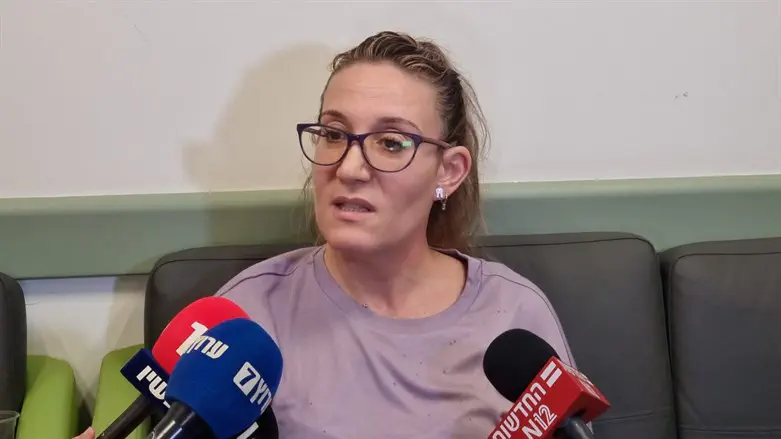
Sabine Taasa, a resident of Netiv Ha'asara who lost her husband, Gil, and son, Or, in the October 7th Massacre, is furious following the publication of the IDF's inquiry into the failures at Zikim, which found that soldiers at the scene did not assist civilians and fled the area.
"We were summoned after we insisted and understood that they didn't intend to invite us, the bereaved parents, to the Zikim inquiry," Taasa said in an interview with Radio 103FM. "I started to scout and use different connections so that we would be present. Already then I understood that something stinks, something here's not right - how could they conduct an inquiry without the bereaved parents who lost their children?" she wondered.
She added: "When I arrived at the inquiry, of course, I came full of enthusiasm, after a year and a half of biting my lip, to hear what they tell me and not to straight away attack and be impulsive. A little bird told me a year and a half ago what happened at Zikim Beach. I refused to come and reveal it to the media. I said: 'I will listen, I will receive the inquiry, and then I will respond.' So I want to say that most of the things that were presented to us in the inquiry are imprecise and incorrect."
Taasa emphasized: "It was one of the greatest failures and tragedies in the State of Israel's history. I did my own inquiry, and I spoke with several survivors. Through those survivors, I put together another piece of the puzzle and another, and to my great surprise, about a month ago, I found a way to break into Or's iPhone. I discovered that everything Or did on his phone on October 7th, including outgoing calls, his photo gallery, including images and photos, just disappeared, completely deleted. So I ask, what did Or take pictures of that they don't want coming out? I, together with this, do not lose trust in the IDF, I do not lose trust in my country.
"Maybe I'm naive, maybe I believe in getting slapped to get back on their feet. What happened on that day, October 7th, in the entire country, in this entire small country, was to awaken the dead, to recalculate our route, to do a hard restart for the military and every field of Israel's security."
According to Taasa, "The soldiers who were in Zikim, those are the same soldiers who were ordered to respond to Netiv Ha'asara hours earlier and to join the emergency response team - they didn't come. Netiv Ha'asara was left with three terrorists. We too, as residents, were abandoned by those same soldiers, that force from Golani's 51st Battalion. I'm not saying that the entire Golani force is guilty, but those specific soldiers, seven soldiers, who that morning were at Zikim Beach, ran like rabbits. That soldier who was in the bathroom and so-to-speak protected my son, his friends, and the civilians, ran away. Before that inquiry, we were certain that the soldier was murdered. To our surprise, the soldier fled. He abandoned the children and fled.
"How can we know that those soldiers who ran away and were not tried won't come tomorrow to the gate of Netiv Ha'asara as reservists with orders to protect us?" she wondered. "Those soldiers who did not meet their life's mission that day must leave the IDF, no matter the reason. Most of them will get out on psychological problems, the vast majority. If you ask me today? Some of them are touring Thailand and picking coconuts."
Taasa demanded that those soldiers who fled stand trial. "I think that they and their commander should be prosecuted. That commander, a company commander, I have his name; he has to stand trial. I don't care about their mental health problems, I don't care about the shell shock that they were in on that day, I don't care about anything. Those people must be prosecuted. Those people can not serve as reservists. They can not get out of this as if nothing happened, to keep living their lives."

